Turkey’s politics are lively and often complicated, shaped by its history, national identity, and ongoing development. At its base, Turkey follows a constitutional republic model with a presidential system-meaning there are three main branches: executive, legislative, and judicial. To get a real grasp of how Turkish politics work, it’s important to look past the official system and see how factors like democratic goals, the past, and changing social values come together. Elections are real competitions with unpredictable outcomes, but Turkey still deals with issues like the centralization of power, weak separation between branches, and a civil society that is active yet faces barriers.
How Turkey’s Political System Works
Turkey’s government combines democratic ideas with traditions of strong leadership. The country has a presidential representative democracy, a constitutional system, and many political parties. This was set in place in the constitution first adopted in 1982 and updated notably in 2017, aiming to split power among the President, Parliament, and Judiciary.

Is Turkey Democratic or Authoritarian?
This is a big point of discussion. Turkey has officially been a democracy since the 1950s, when it adopted a system allowing many parties and regular elections. Elections in Turkey are real contests, like in 2023, when President Erdoğan only won re-election after a close second round, and the opposition looked strong. The March 2024 local elections were another example, with the opposition (Republican People’s Party, CHP) winning in most big cities, including Ankara and Istanbul.
Still, Turkish democracy has problems. Critics mention that power is too focused at the top, the media is mostly one-sided, and the legal system is sometimes used for political reasons. Restrictions on speech and politics remain. Local governments do not have much control, adding to a sense that while Turkey is democratic, it has real flaws-sometimes called a “flawed democracy.”
What Kind of Government Does Turkey Have?
After a 2017 referendum, Turkey changed to a presidential system, moving away from its old parliamentary setup. Before, the prime minister led the government, and both the president and parliament shared meaningful power. With the change, the prime minister’s office was removed, and the president took on full control as both head of state and government. The goal was to stop unstable governments and frequent early elections. Now, Turkey clearly splits power across the executive, legislative, and judicial branches as described in its constitution.
How Has the Constitution Affected Turkish Politics?
The 1982 constitution, updated over time, has had a big impact on Turkish politics. It reflects ideas like republicanism, populism, nationalism, secularism (laicism), state involvement in the economy, reform, modernization, and looking to the West-mostly following Atatürk’s vision for Turkey. The 2017 updates made the president more powerful, letting them issue decrees, appoint key people, and oversee investigations, but cut back on parliamentary checks. This has raised concerns about too much power at the top. The constitution promises an independent judiciary, but how this works in practice is often debated.
How Has Turkish Democracy Changed Over Time?
Turkey’s democracy has seen many ups and downs. Knowing its history helps you understand the current situation.
A Quick History since 1923
Turkey became a republic in 1923, moving away from the Ottoman Empire. At first, there was only one party: Atatürk’s CHP. The switch to real competitive elections happened in 1950, with the Democratic Party (DP) winning and representing more conservative voters. After the 1950s, right-leaning and conservative parties have mostly been in charge. Even with multiple parties, democracy was sometimes interrupted.
Military Coups and Their Effects
The armed forces have often stepped in, claiming to protect Turkey’s secular and republican values. Major coups happened in 1960 (resulting in the execution of the prime minister), then in 1971, 1980, and 1997. Each time, they claimed to stabilize the country but disrupted democratic life. Each intervention led to constitutional changes, but the military’s influence lingered long afterward. The failed 2016 coup led to major purges across government agencies and more central control by the presidency.

How Have Civil Liberties Changed?
Civil rights in Turkey have seen both improvement and decline. Early years of AKP rule (from 2002) saw promising democratic reforms and even talks about joining the EU. But after 2016, civil liberties have worsened. Organizations like Freedom House say Turkey is “Not Free” and point to limits on media, speech, and political activity. Journalists, activists, and opposition figures face prosecution. While the constitution protects rights like free assembly, the government often restricts opposition gatherings and shows favoritism to Sunni Islam. Major purges after 2016 closed media outlets and civic groups, tightening government control and making people more wary.
Generational Change and New Trends
Despite challenges, new movements and generational shifts are shaping Turkey. Turnout in elections is high-over 80%-showing both opposition and government supporters believe in the process. Turkey doesn’t have huge oil or gas reserves, so it needs open trade and innovation, which discourages long-term authoritarian rule. Young people, especially those who have known only the AKP government, are increasingly engaged and eager for change, as shown by their creative protests and boycotts. The latest local elections, with big wins for the opposition, hint at new alliances and a political system that remains open to contest. All this underlines that Turkish democracy, while facing difficulties, still has room for positive change.
What Are Key Principles in Turkish Politics?
Certain ideas have shaped Turkish political life and still guide debates today. These ideas are sometimes in conflict due to Turkey’s history and diversity.
Secularism’s Role
Secularism (laicism) means keeping religion separate from state matters. Atatürk made this central to the republic, and for years the military saw itself as this principle’s main defender. Secularism once meant strict rules against public religious expression, like banning headscarves in some places, which was often challenged by more religious groups. With rising Islamic politics, debates over how much religion should shape public life continue. The constitution still promises religious freedom, but some say recent governments have favored Sunni Islam. Secularism versus religion is a continuing argument at the heart of Turkish politics.
Nationalism and Identity
Nationalism is another strong force. Most major parties, like the MHP (far-right nationalists) and the AKP (more conservative), build support on ideas of Turkish identity. But not all nationalism is the same-Kurdish groups, for example, seek more rights for Kurds, making identity one of Turkey’s biggest political divides. The military has long promoted unity and security, but balancing different identities, especially with so many Kurds, is still a big issue for Turkish politics.
The Place of Islam and Religion
While religion was downplayed for decades, the 1990s and 2000s saw religious-based parties gain power-most notably the AKP. Now, public religious life, religious schools, and the influence of the Directorate of Religious Affairs have grown. While these changes have appealed to conservative voters, many secular and non-Sunni groups feel left out. The tension between keeping Turkey strictly secular and allowing more religion in public life remains unresolved.
How is Turkey’s Government Structured?
Turkey’s national government follows a strong but centralized presidential system, with power officially divided into executive, legislative, and judicial branches-though recent changes have strengthened the executive branch the most.
The President’s Role and Powers
The President of Turkey leads both the country and the government, with responsibilities set by the 2017 reforms that ended the prime minister’s office. The president is chosen by citizens for five years and can serve up to two terms (with some exceptions). As military commander, the president is very influential. Key powers include:
- Vetoing parliament bills (parliament can override)
- Issuing executive decrees (but parliament laws override these, especially for basic rights)
- Forming/organizing ministries and naming Cabinet members
- Declaring emergencies (up to six months)
- Managing the national budget
This setup puts most major decisions with the president, increasing concerns about too much concentrated power.
The Grand National Assembly (Parliament)
The Turkish Parliament (Türkiye Büyük Millet Meclisi) has 600 members from all 81 provinces. Its jobs include making laws, approving budgets, declaring war, ratifying treaties, and impeaching officials. Members are elected every five years using a system that requires parties to win at least 7% of the vote to enter parliament (it used to be 10%). With the new system, if the president’s party has most seats, parliament’s checking power is weak, and its influence has dropped compared to the past.
How Independent Is the Judiciary?
The Turkish Constitution promises the courts will be independent, and judges must explain their decisions based on law and their own understanding. There are several main courts:
- Constitutional Court (major rulings, rights cases)
- Court of Cassation (highest for general legal matters)
- Council of State (highest for administrative matters)
- Court of Jurisdictional Disputes
Judges are appointed by the president and parliament. Local disputes go to lower courts, and big cases need three judges. While the system is detailed, trust in the judiciary is low, mainly because of interference and appointments of loyalist judges after 2016, making many see the courts as political tools.
How Are Local Governments and Administrative Divisions Set Up?
Turkey is split into provinces, run by governors picked by the national government. These provinces are divided into districts and subdistricts.
- Provinces → run by appointed governors
- Villages → led by elected headman and council of elders
- Municipalities → have elected mayors and councils (in cities or larger towns)
Local authorities manage services like water, transport, and schools, but their power is often limited by the central government. Although Turkey is part of the Council of Europe and should allow more local control, the national government exerts tight control and often removes elected officials, especially in opposition-run Kurdish areas, replacing them with appointed “trustees.”
Which Parties and Alliances Lead Turkish Politics?
Turkey has many political parties, but a handful dominate, often divided by views on religion and national identity.
Main Parties and Their Roles
| Party | Orientation | Main Leader | Key Supporters |
|---|---|---|---|
| AKP (Justice and Development Party) | Conservative, Islamic, center-right | Recep Tayyip Erdoğan | Religious/conservative voters |
| CHP (Republican People’s Party) | Secular, center-left | Founded by Atatürk | Secular/urban voters |
| MHP (Nationalist Movement Party) | Far-right, nationalist | Devlet Bahçeli | Nationalists |
| DEM (People’s Equality and Democracy Party, formerly HDP) | Kurdish, left-wing | – | Kurdish movement supporters |
| İYİ Party (Good Party) | Nationalist, center-right | Meral Akşener | Moderate nationalists |

Small leftist and other groups also exist, but these are the most visible.
The Importance of Alliances
Parties often team up because of the high 7% threshold to enter parliament. The ruling AKP and MHP have worked together for years as the “People’s Alliance,” controlling national politics. The opposition, led by the CHP, forms coalitions to win local elections, sometimes joining with Kurdish-backed parties and centrists. Alliances can change to fit political needs and strategies.
Challenges Faced by the Opposition
Even though the opposition can win city elections, they struggle to compete nationally due to government power over the media and courts. Opposition leaders often face legal hurdles or jail, and mayors can be removed and replaced by government-appointed trustees. Despite this, high voter participation shows the public’s commitment to elections. Protests often erupt after controversial arrests, like that of Istanbul’s mayor in 2022, revealing widespread discontent and a push for more democracy.
How Does Voting Work in Turkey?
Elections are a big part of Turkish democracy and remain meaningful, with results that matter and draw high turnout.
Types of Elections
- Presidential elections (every 5 years)
- Parliamentary elections (every 5 years, on the same day as presidential)
- Local elections (mayors, councils, every 5 years on a different date)
- Referendums when needed (for constitutional changes)
The system uses proportional representation, with a party needing at least 7% of the vote to get seats in parliament. The president and parliament are elected on the same day starting from the 2017 changes, to try to avoid ineffective government deadlocks.
Who Can Vote?
All Turkish citizens over 18 can vote and run as candidates. This has been the rule since 1934, with candidate age requirements slowly dropping over the years to encourage younger participation.
Is Voting Fair?
While voting days are organized and results mostly respected, there are problems during the campaign period. Groups like the OSCE have reported misuse of government resources by the ruling party, and opposition parties, especially the Kurdish DEM (formerly HDP), face pressure and legal trouble. The Supreme Electoral Council (YSK) is supposed to be in charge and neutral, but critics say recent changes have made it more government-friendly. A key example is the 2019 Istanbul mayoral race, where the initial opposition win was annulled, only for the opposition to win again by a bigger margin in the rerun. Despite these issues, most people believe voting still matters in Turkey.
What Is the Military’s Political Role?
The Turkish military once had huge influence, claiming to protect the country’s secular founding values. This has changed a lot in recent times, but remnants of this influence still matter.
The Military’s Historic Influence
Since 1923, the armed forces saw themselves as enforcers of Atatürk’s secularism. They led coups in 1960, 1971, and 1980, plus a “postmodern coup” in 1997, to remove governments they saw as threats to secularism. The military’s say wasn’t just through coups-they shaped foreign policy and national identity too, and were seen as a trusted institution. However, these interventions stopped Turkey from becoming a fully stable democracy, and they grew unpopular with both Turkish reformers and European partners.
Recent Changes in Military-Political Ties
After the AKP came to power, civilian leaders worked to limit the military’s involvement in politics, sometimes with backing from other political groups. While the military still tried to influence politics, like through the 2007 “e-memorandum,” the failed coup in 2016 changed things dramatically. In its aftermath, thousands of soldiers, police, judges, and civil servants were purged, cementing the government’s control over the army. The military now has some influence through advisory bodies but doesn’t hold the power it once did. However, concerns remain about abuses, especially after the mass purges and restrictions following the failed coup.
How Are Political Parties Funded?
Political parties in Turkey operate under specific rules for getting money, but there are issues with how open and fair this funding really is.
Rules for Funding Parties
Parties get money from donations, member fees, property income, and activities. Since 1965, parties passing the electoral threshold get funds from the Treasury:
- If a party earned over 7% in the last election, it gets annual public money.
- Parties with more than 3% also get something, scaled to their vote share.
- Public funding triples in election years.
Donations from foreign sources or anonymous donors are banned. Government-linked businesses also can’t contribute, to avoid unfair influence.
Issues with Transparency
The Constitutional Court reviews party finances each year, and party leaders must file accounts. Yet, reports of corruption-like money laundering and unfair government contracts-are common, and laws aren’t always enforced. After the 2016 crackdown, the government took over many businesses and organizations, raising further worries about misuse of funds.
How Do Turkish Foreign Relations Connect to Its Politics?
Turkey’s foreign policy is closely linked to what happens inside the country. Its location between Europe, Asia, and the Middle East means it often balances between different alliances and regional rivalries.

EU Relations and Membership Efforts
Wanting to join the EU motivated lots of reforms, especially in the early 2000s. Turkey signed agreements with the European Economic Community in 1963, joined the EU Customs Union in 1995, and began serious entry talks in 2005. But over time, EU leaders became less keen on accepting Turkey. With slow progress and little optimism, Turkey’s EU bid has now stalled and Europe has lost much of its pull over Turkish politics.
NATO and Security Alliances
Turkey joined NATO in 1952 for security, especially against Soviet threats. It has NATO’s second biggest army (after the US) and received major military support, including US nuclear weapons on its soil. Yet, buying Russian missiles and other disagreements have strained relations with NATO partners, though membership still anchors Turkey’s defense policy.
Approach to the Middle East, Israel, and Greece
Turkey’s policy toward the Middle East combines old ties and new ambitions. Early on, Turkey worked with Israel but this upset Arab countries. Conflict in Syria spilled over, bringing more than 3.5 million refugees and security threats. Turkey has also clashed with Greece over borders and Cyprus. The country’s focus on security, especially in dealing with neighbors, influences both international relations and its approach to politics at home.
Sanctions, Trade, and Regional Role
Turkey’s political moves can trigger economic sanctions from countries like the US, such as after buying Russian defense systems. At the same time, Turkey seeks to grow its role in trade and energy. It’s part of key groups like the OECD and the Council of Europe. The government’s focus on nationalism affects how it handles foreign relations, sometimes leading to tough stances, but Turkey’s economy also pushes it toward cooperation.
What Are Turkey’s Main Challenges and Future Paths?
Turkey faces important tests ahead, both at home and in its links with the world. Several trends help highlight what might come next.
Can Turkish Democracy Improve?
There are good and bad signs for Turkey’s democracy. Most people vote, and parties believe they really have a shot in elections-key features of a working democracy. Turkey can’t afford to shut itself off from the world because it needs trade, so this might keep leaders from becoming too authoritarian for long. Political parties have strong support bases, and that keeps the system lively. On the other hand, most power is centralized, and the courts and media are seen as biased, which makes reforms difficult. Turkey’s democracy is hurt by weak independent institutions, a strong executive, political polarization, and less foreign support for reform.
Polarization and Social Splits
Society is sharply divided-mostly secular versus conservative, and Turkish nationalism versus Kurdish identity. Government responses to protests and security issues, and hardline policies, make these splits even sharper and limit political freedom. The recent detention of the Istanbul mayor shows the government’s approach and how far it will go against opposition. At the same time, many people, including those protesting, often support some form of nationalism, which shapes ongoing debates.
Upcoming Elections and Political Changes
Politics in Turkey is always changing, with the next general elections set for 2028 and local ones for 2029 (unless early elections take place). Recent local elections in March 2024 showed the main opposition gaining ground, hinting the ruling AKP-MHP bloc could be losing its grip. Even the alliance itself shows cracks, with some leaders proposing new talks on old problems, like the Kurdish issue. Widespread protests, especially by young people, reveal a desire for change. No one can say for certain how things will turn out, but Turkey’s active voters, party bases, and big social divisions will keep making politics intense and unpredictable for the coming years.


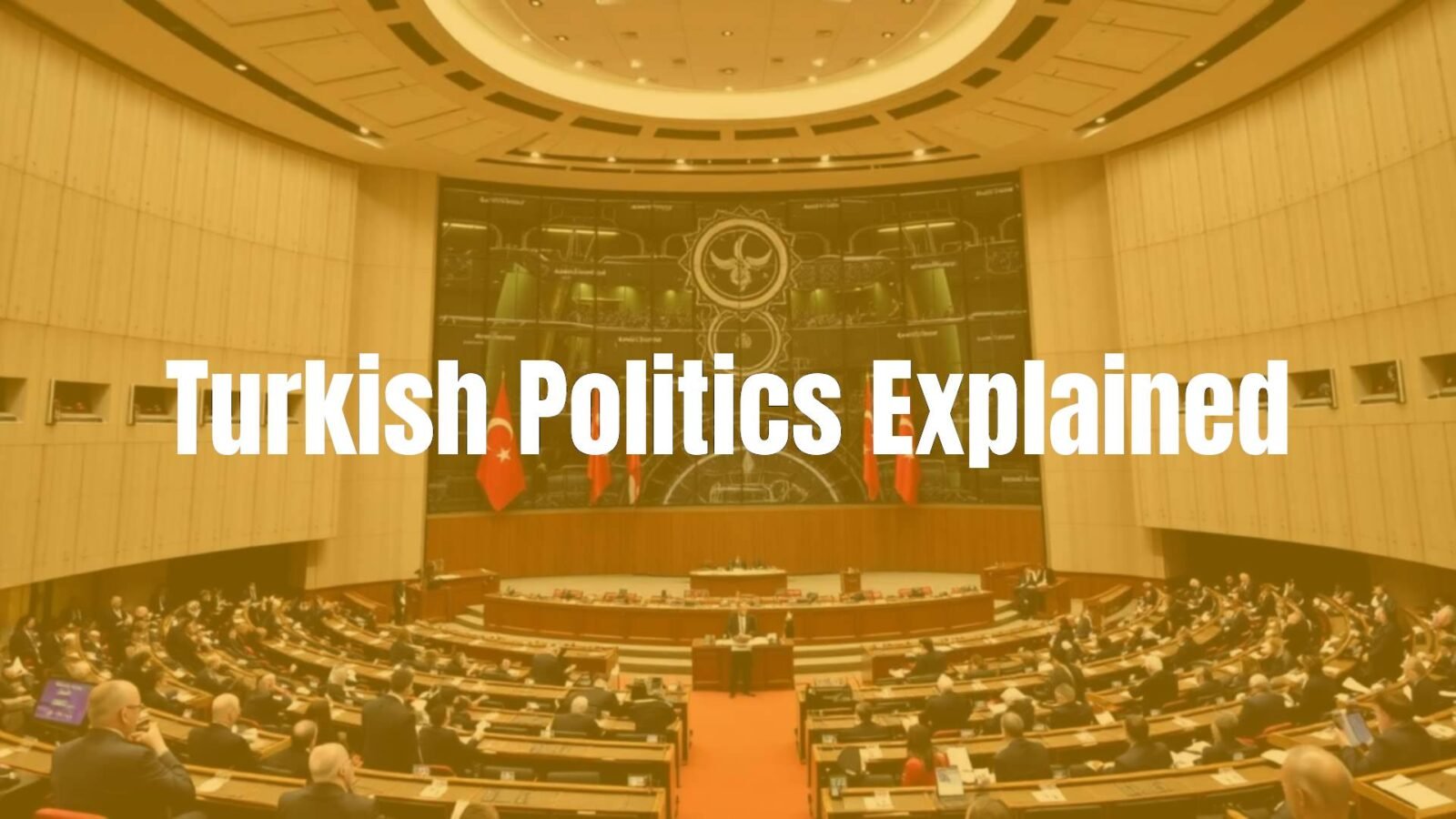


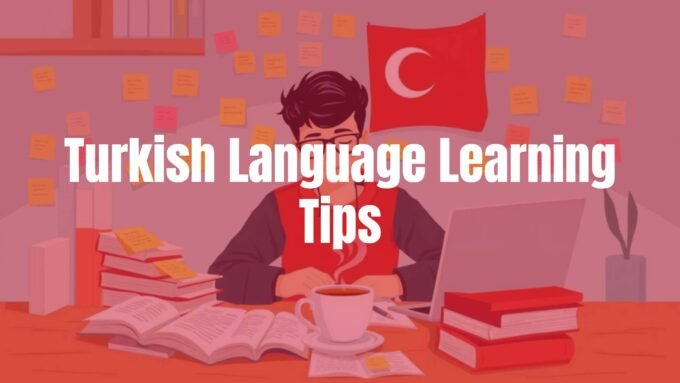

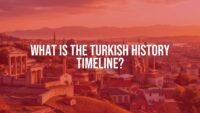

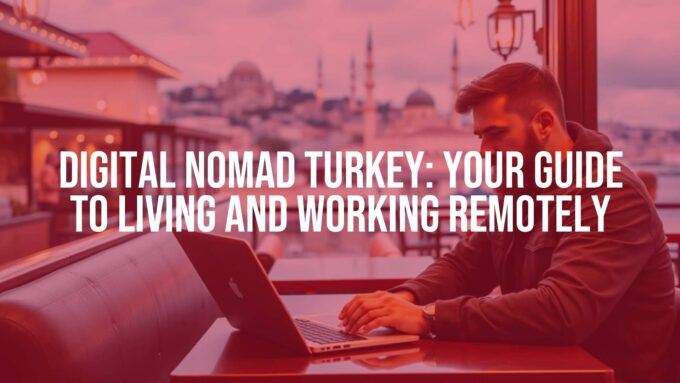
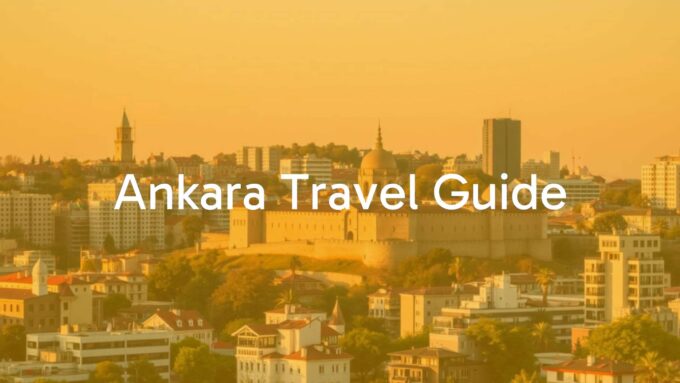




Leave a comment